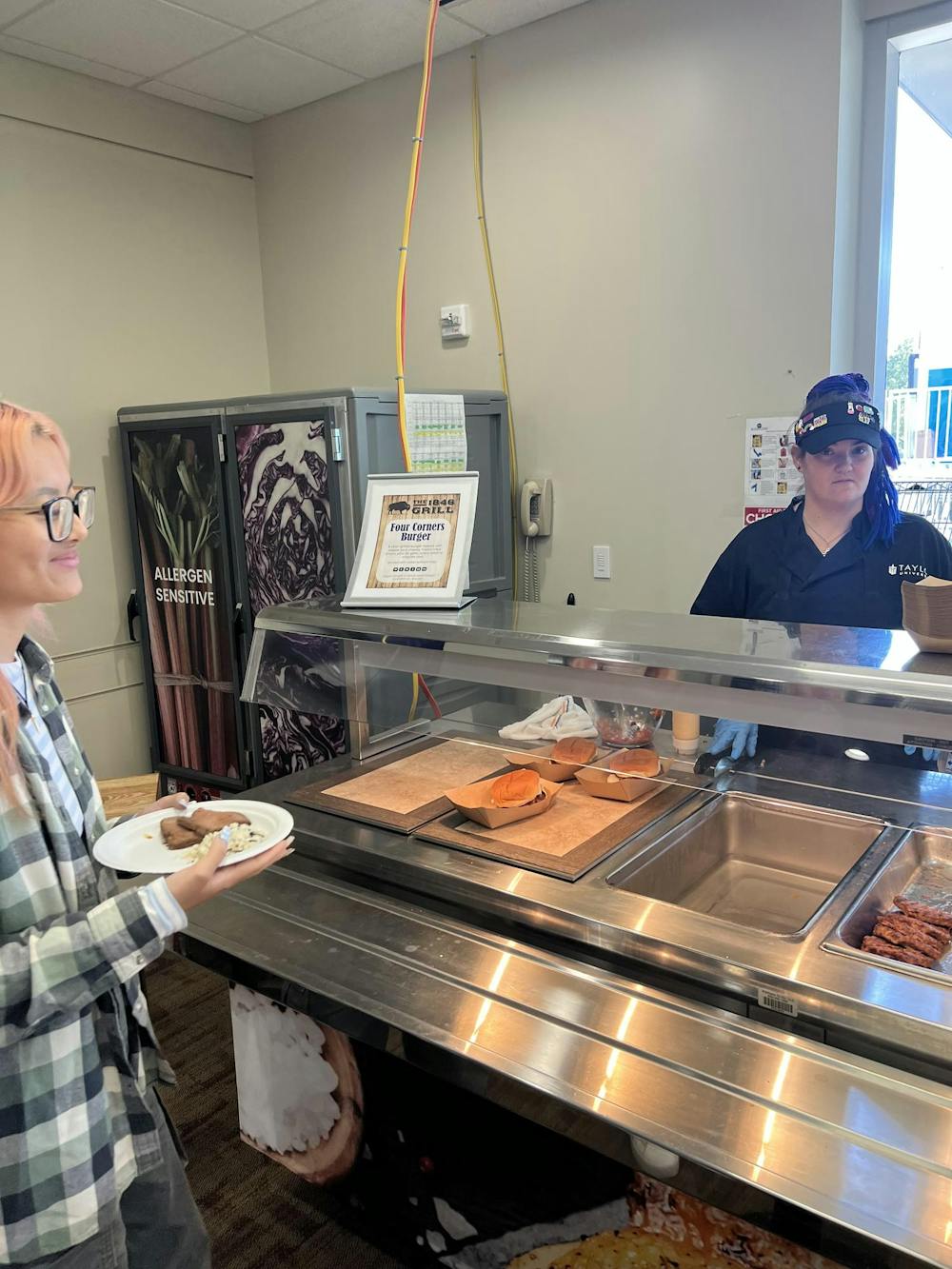Taylor University students brave the lines into the Euler Science Atrium during meal times, waiting to pile food onto paper plates and plastic cups.
Yet while students wait, dining staff work hard behind the scenes to feed the student population.
In an email from Stephen Olson, vice president for finance and chief financial officer, to the Taylor community, he detailed updates on the current dining situation and expressed the university’s excitement to partner with AVI Fresh.
“Cooking and serving food out of the temporary kitchens is very challenging, and the logistics of providing food every day, all day, to about 2,000 people is tough!” Olson wrote. “AVI leadership continually tells me that they are excited to be here and that they have been so impressed with Taylor students.”
In the midst of the challenges that dining staff navigate, students can continue to encourage them by expressing gratitude through generous and intentional interactions.
Mike Severe, professor of Christian ministries, said some practical ways students can demonstrate that love is by making eye contact, learning names and being patient. Students could also refrain from ill discussion or gossip that does not build up others.
In his Evangelism and Discipleship course, Severe said his students participate in a project where they are told to listen to people’s stories — without interruption. One student, he recalled, chatted with a dining staff member who told her that no one had ever listened to their story before.
“Just how sad that is, to be surrounded by thousands of Christian students who are going off to make a difference in the world, and yet the people that serve us every day haven't had an opportunity to even share their life?” Severe said. “[That is], until somebody was taking a moment and made a choice to stop and listen just for five minutes.”
Thankfulness is connected very closely in Scripture to generosity, Severe said. Students can express their gratitude through giving their time to listen.
Katie Kelley, assistant professor of psychology, said part of that requires being present and observant.
“I think it's generous, especially in this day and age, when you give someone your full attention and you let them know that you see them and you see what they're doing,” she said.
Studies show, Kelley said, that expressing gratitude strengthens relationships.
Not only that, but mirror neurons in the human brain allow others to copy movements as well as emotions. These neurons help people read each others’ expressions and sometimes gauge how they are perceived.
When students are intentional with dining staff, a psychological component takes place that truly does encourage others — even in spite of struggle.
“When things are frustrating, hard or not working out, it's acknowledging [that] we see the effort that you're putting in, we think your effort is valuable and we're not just here because of that desire to be served,” she said. “So I think one of the big outworkings of gratitude is this patience — bearing with one another in love.”
Kirsten Stinson, discipleship coordinator for English Hall, said that the seemingly mundane etiquette — asking “how are you” or small talk questions — can show care while emphasizing someone notices them.
Other ways, Stinson said, could be chatting about what you enjoyed about your meal that day. The words we use, she said, can change attitudes and influence our own actions.
The meal swipe line is a great opportunity to seek out positive angles.
“Personally, I love that chance because I get to look over the railing and figure out what's on the menu,” she said.
As the temporary dining location stands still for the next few months, Taylor students should be uplifting the dining staff who are working in new, unordinary conditions to provide food. The intentional community should go beyond the student body.
By listening, noticing and demonstrating compassion, the community not only builds itself up but also reflects the love and character of Jesus. Our own gratitude can shed light to God’s gifts in life.
“We have the opportunity to respond in thankfulness to that because there's not any lack,” Severe said. “It's all good. It's all from him, and it's for our benefit, because he's generous.”




